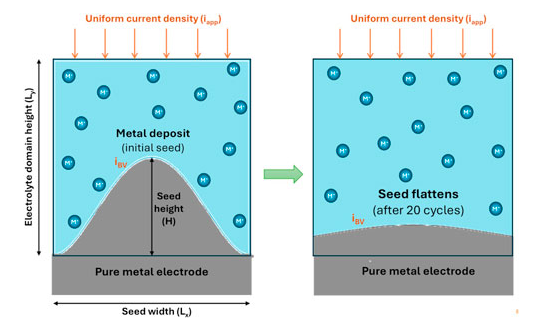Tushare Telmasre, a graduate student in the Materials Science & Engineering Program, has recently published an article in ECS Advances that explores the connection between battery usage, recharging, and the surface of the zinc anode. A student in Dr. Venkat Subramanian's lab, Telmasre, along with postdoctoral researcher Dr. Lubhani Mishra, and other UT researchers from the CMES Lab, the paper finds that how a battery is used and then recharged directly impacts the surface of the anode and dendrite growth.
When chemical engineering assistant professor and TMI affiliate faculty member Kent Zheng observed interesting experimental results for zinc batteries, his group suggested and inspired a model development to better understand the data. Using first a computer model and then confirming the findings with lab tests, the researchers found that when a battery is used heavily but recharged lightly, the surface of the zinc becomes smoother and inhibits the growth of dendrites. However, when the battery is used gently and recharged lightly, the surface does not change.

Their findings highlight that controlling the current use and recharge rate can effectively control how smooth or rough the zinc surface becomes.
Read more of their findings in their article "Tuning Anode Morphology Through Strategic Cathode (Global) Current Manipulation: A Modeling and Simulation Study," at ECS Advances. Coauthors of the article include Kent Zheng and his student Aakriti Aggarwal in the Department of Chemical Engineering

